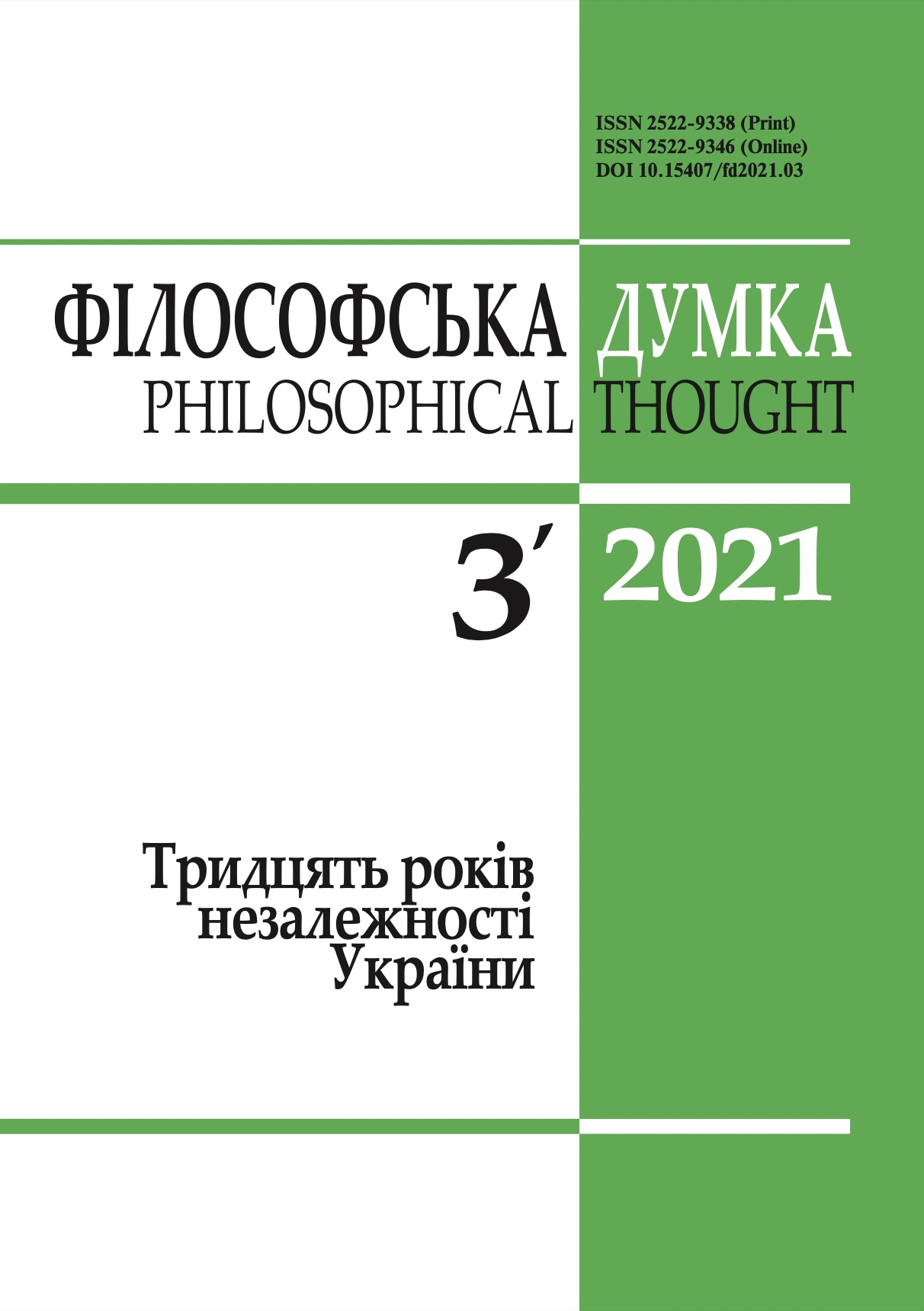SOCIAL DRAMA OF INDEPENDENCE
DOI:
https://doi.org/10.15407/fd2021.03.064Keywords:
independence, the principle of domination, power rent, doubling of sociality, political culture, citizenAbstract
The article analyzes the problem of Ukraine's development since independence. A comparison of the way of organizing social reality in modern Ukraine and in the Soviet period is carried out. The main regulatory factor in the life of Soviet society was the principle of domination. Ukraine has inherited the principle of domination and retains its leading role in the current social order. Its various manifestations that determine the structure of Ukrainian society, in particular the growth of the bureaucratic class and bureaucratic pressure on all spheres and sections of life, are analyzed. The dominance of bureaucracy contains latent violence, feeds corruption and minimizes social dynamics. It is also a phenomenon of power rent, which finds its expression in a kind of "privatization of the state." Another universal effect of the principle of domination is the doubling of social reality into apparent and hidden. The apparent reality becomes a space for the existence of ordinary citizens and the implementation of legal procedures, while the hidden one contains a system of real circulation of power, which is not regulated by any legal regulations, instead, controls all movements of the social body. The systemic role in the hidden society is played by cliques — informal groups of influential people who really control the course of events. The con- sequence of the principle of domination is the passivity and marginalization of the Ukrainian citizen, associated with the defect of political participation. Such non-participation in power is embodied in such forms of consciousness as hope, liking, and despair. Today, independence is not a given, but a chance that must be realized. The way to this is through the restoration of the role of the people as a sovereign power and the development of non-dominant regulatory factors of sociality.
References
Acemoglu, D., Robinson, D. (2015). Why some countries are rich and others are poor: the origin of power, prosperity and poverty. [In Rusiian]. Moscow: AST.
Bukharin, N.I. (1990). Economy in transition. [In Russian]. In: N.I. Bukharin, Selected Works (pp. 81–208). Moscow: Economics.
Burakova, L. (2012). Why Georgia succeeded. [In Ukrainian]. Kyiv: Dukh i Litera.
From "wars of memory" to the common future: overcoming polarization in Ukraine (2020). [In Ukrainian]. Kyiv: LSE.
How GDP has changed at purchasing power parity in post-socialist countries (2018). [In Uk- rainian]. Retrieved from: https://ru.slovoidilo.ua/2018/03/21/infografika/jekonomika/
Lenin, V.I. (1970). Complete works (vol. 45, pp. 378–382). [In Russian]. Moscow: Politizdat.
List of countries by GDP growth rates (s.a.). [In Russian]. Retrieved: https://ru.wikipedia.org/ wiki
Rail Transport in the United States (s.a.) Retrieved from: https://ru.wikipedia.org
The Ministry of Economy has worsened the forecast for GDP growth for 2021 and 2022 (2021). [In Russian]. Retrieved from: https://www.epravda.com.ua/rus/news/2021/05/21/674121/
The World Bank has predicted a record for 80 years of global economic growth (2021). [In Russian]. Retrieved from: https://www.vedomosti.ru/economics/news/2021/06/08/
Downloads
-
PDF (Українська)
Downloads: 218
Published
How to Cite
Issue
Section
License
Authors who publish with this journal agree to the following terms:
- Authors retain copyright and grant the journal right of first publication.
- Authors are able to enter into separate, additional contractual arrangements for the non-exclusive distribution of the journal's published version of the work (e.g., post it to an institutional repository or publish it in a book), with an acknowledgement of its initial publication in this journal.
- Authors are permitted and encouraged to post their work online (e.g., in institutional repositories or on their website) prior to and during the submission process, as it can lead to productive exchanges, as well as earlier and greater citation of published work (See The Effect of Open Access).


